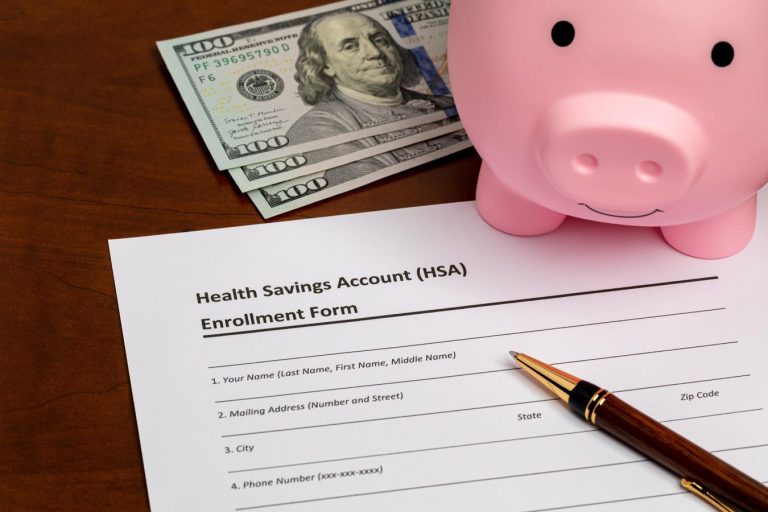The tax advantages of a health savings account (HSA) are unique, even better than any IRA or 401(k) plan. As a result, an HSA is like a “super IRA,” and you should contribute as much as you can afford, subject to IRS limits on HSA contributions. Let’s dig into the details and reasons.
Who’s Eligible To Participate And What Are The Contribution Limits?
You’re eligible to contribute to an HSA if you participate in a high-deductible health plan (HDHP) and if your employer sponsors an HSA. The minimum deductible to qualify as an HDHP changes every year; for 2024, it’s $1,600 for individual coverage and $3,200 for family coverage. However, there are more qualifying details regarding HSAs and you should check with your health plan administrator to make sure you’re eligible to participate.
The limits on annual contributions for 2024 are $4,150 for individual coverage and $8,300 for family coverage. If you’re the account holder and are age 55 or older, you can contribute an additional $1,000 catch-up contribution to your HSA for 2024.
Special rules apply if you shift between single and family coverage during the year, such as getting married or divorced.
An HSA Has Triple Tax Advantages
An HSA has three powerful tax advantages that enable true tax avoidance:
- Contributions reduce your taxable income for the year during which you make the contribution.
- Investment earnings aren’t taxed.
- Withdrawals for qualified medical expenses aren’t taxed.
You never pay income taxes on HSA contributions and investment earnings, provided your withdrawals are for qualified medical expenses.
Compare these tax advantages to any IRA or 401(k) plan; with these plans, sooner or later, you’ll pay income taxes. While traditional IRA and 401(k) contributions reduce your taxable income, you’re taxed on withdrawals. And with a Roth IRA or 401(k), it’s the other way around: Your contributions are subject to income taxes but your withdrawals are not.
What Are Qualified Medical Expenses?
The definition of qualified medical expenses includes the usual items covered by a typical health plan. As a result, your HSA can reimburse you for the standard deductibles and copayments that you pay. Another advantage is that the definition is fairly broad and includes items that often aren’t covered by your health plan. Examples include acupuncture, chiropractic care, dental expenses, eye glasses, hearing aids, long-term care expenses, premiums for long-term care insurance, and over-the-counter medicines.
You can also use an HSA to pay the premiums for Medicare Part B and Part D (including IRMAA surcharges) and for Medicare Advantage Plans, but not for the premiums for Medigap plans.
My wife and I are both age 70, and we have many friends in our age group. Like most people our age, we’re managing several health conditions that require significant amounts of qualified medical expenses. Based on our experience, we’re confident that eventually we’ll use all our funds in our HSA for qualified medical expenses.
What Happens If Your HSA Pays For Nonqualified Medical Expenses?
You can withdraw from your HSA to pay for items that aren’t qualified medical expenses, but you’ll pay income taxes on those withdrawals and a 20% penalty until you’re age 65. If you’re well under age 65, you’ll want to be sure you don’t need the money you’d use to pay for ineligible expenses that are more necessary expenditures for you.
Once you reach age 65, you won’t have to pay the 20% penalty, although you still must pay income taxes on any withdrawals you’re using for unqualified medical expenses. It’s this feature that helps make an HSA a super IRA. Once you’ve reached age 65, any withdrawals for nonqualified medical expenses are taxed the same way as withdrawals from a traditional IRA or 401(k) plan.
What Happens To Your HSA When You Die?
If you’re married when you pass away, then your spouse becomes the account holder and is subject to the same rules regarding taxes and qualified medical expenses. If you’re not married, the account becomes part of your estate. The beneficiary will have to include the amount in their gross taxable income, but it won’t be subject to the 20% penalty.
Strategies For Maxing Your HSA
When you’re deciding how much to contribute to various retirement accounts, here’s a priority to consider:
- First, for your 401(k), 403(b), or 457 plan, contribute any amounts up to the limits that are matched by your plan. For example, some plans might match contributions up to 6% of your pay, so in this case, you’d want to contribute a minimum of 6%—you don’t want to miss out on employer matching contributions.
- Next, contribute up to the maximum amount for your HSA, due to the triple tax advantages.
- Once you’ve maxed out your HSA, contribute amounts that aren’t matched in your 401(k), 403(b), or 457 plan.
Of course, this suggested list of priorities is subject to how much you can afford to contribute, given your need to pay for your current living expenses.
Another decision you’ll need to make is whether you use your HSA to pay for deductibles and copayments while you’re working or whether you should let your account grow to be used in retirement. Once again, if you can afford it, letting your HSA grow until retirement will give you another financial resource when you’ll most likely need the money.
My wife and I aren’t planning to tap our HSA until our late 70s or 80s, when we anticipate higher medical expenses and the possibility of needing long-term care. Since we have a long investing horizon, we’ve invested our HSA significantly in the stock market.
The bottom line: There aren’t any disadvantages to contributing as much as you can afford to an HSA. You’ll be able to spend the money sooner or later and save on taxes in the process, no matter your age. Before you make any decisions, however, take the time to understand how you’ll use your HSA and the rules for special situations that might apply to you.
Read the full article here









